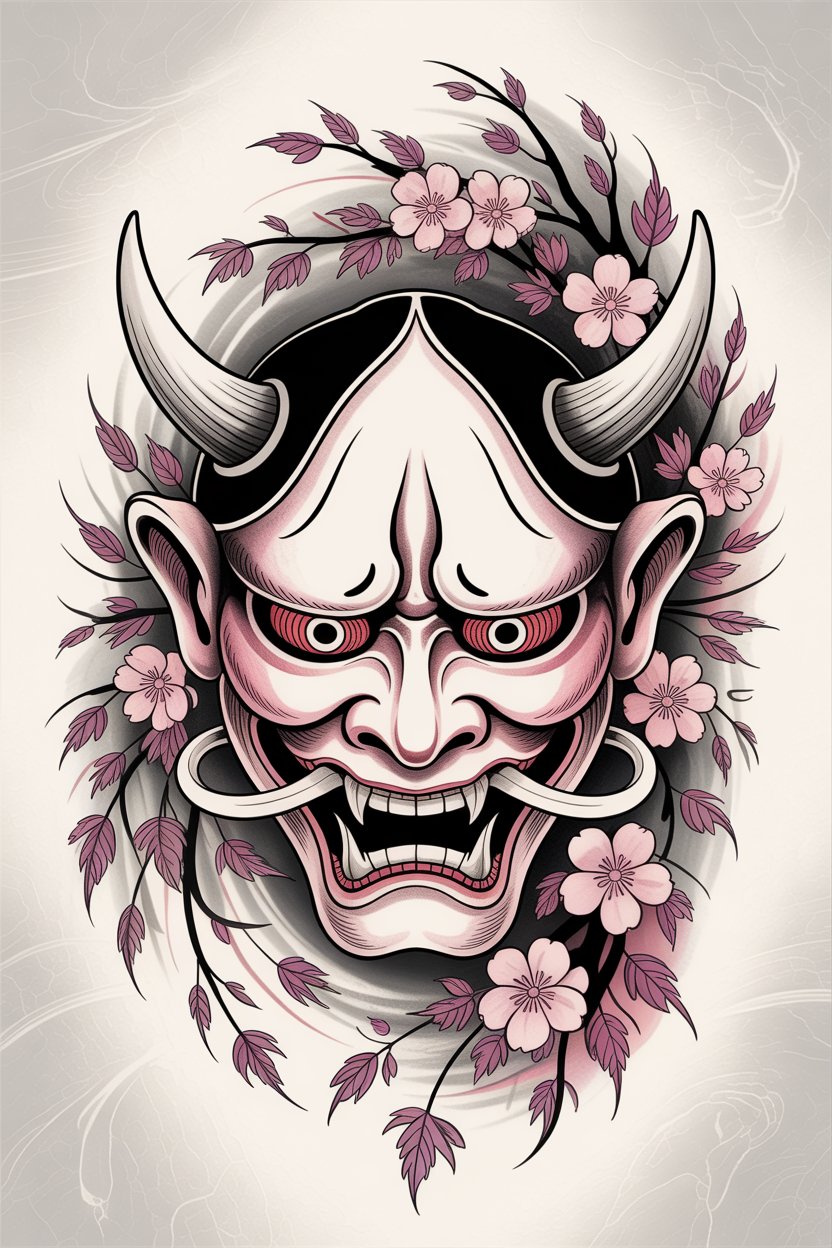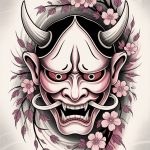The Hannya mask comes from Japanese Noh theatre and represents a woman turned demon by jealousy and rage.
It’s powerful, scary, yet deeply symbolic.
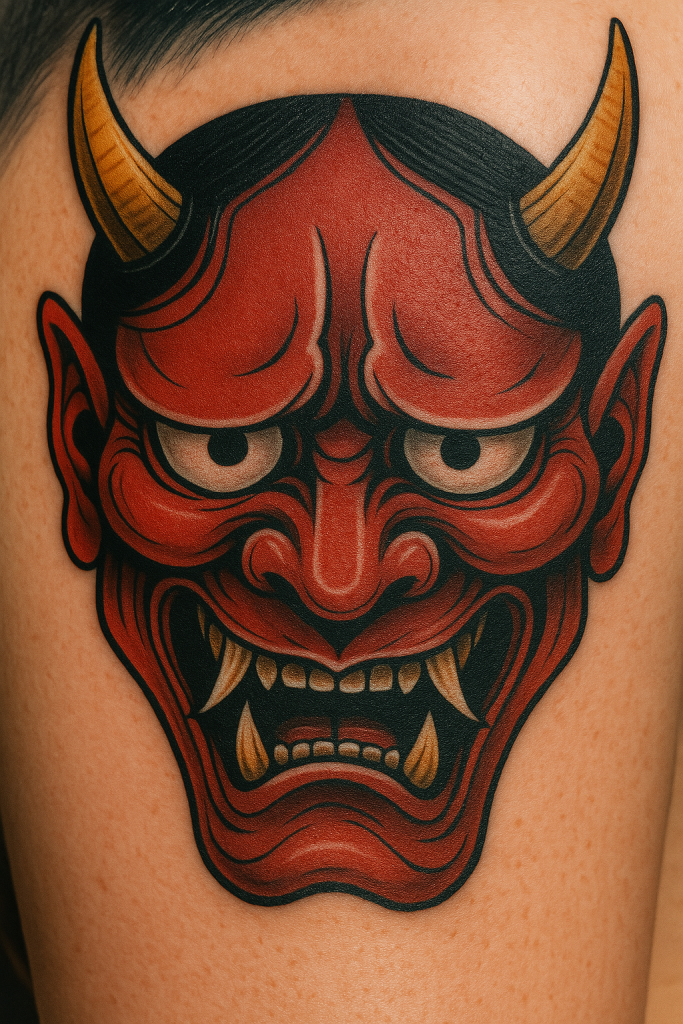
Symbolism of Hannya Mask Tattoos
- Red masks: intense anger & jealousy.
- White masks: hidden emotion, sadness.
- Black masks: deep resentment & mystery.
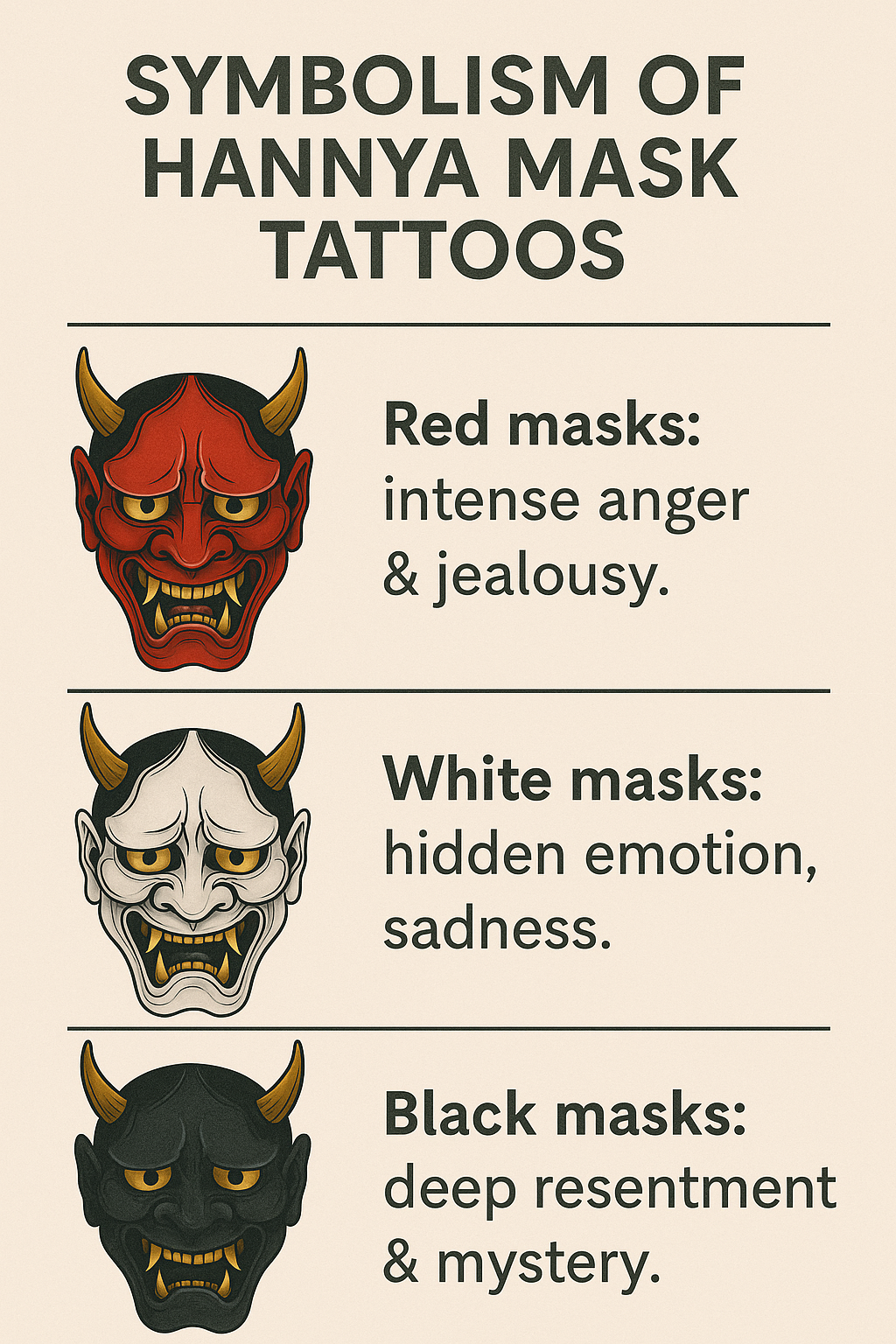
Best Placements for Hannya Mask Tattoos
The mask works best as large tattoos on the back, chest, or full sleeves.
Smaller designs fit well on calves or shoulders.
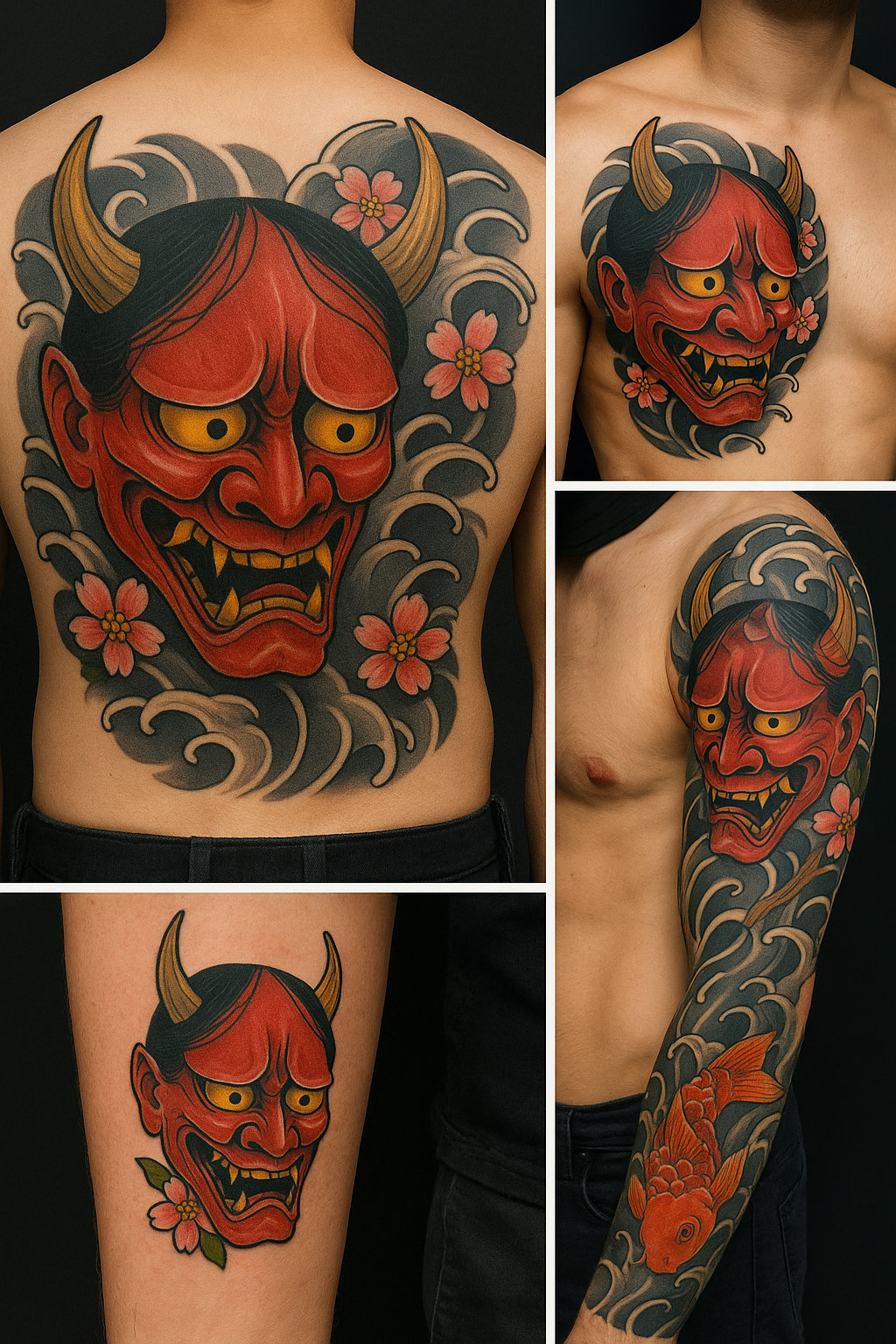
Popular Hannya Mask Styles
- Traditional Irezumi: bold Japanese colors.
- Black & Grey: dark, realistic shading.
- Neo-traditional: modern bold lines & colors.
- Minimalist: fine-line, subtle masks.
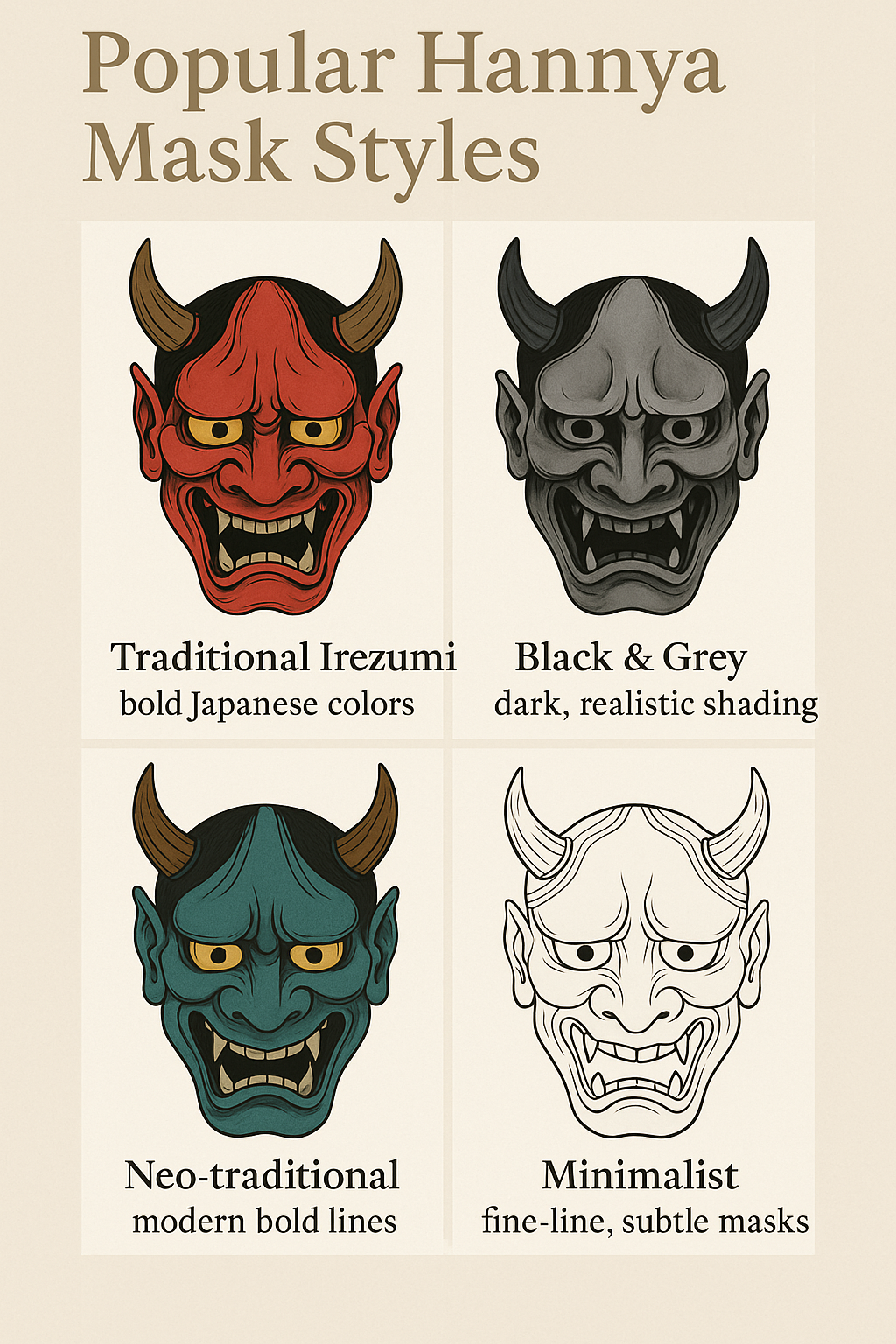
Hannya Mask with Other Elements
Artists often mix the mask with samurai, koi fish, cherry blossoms, or waves.
This adds meaning and creates a complete Japanese tattoo story.
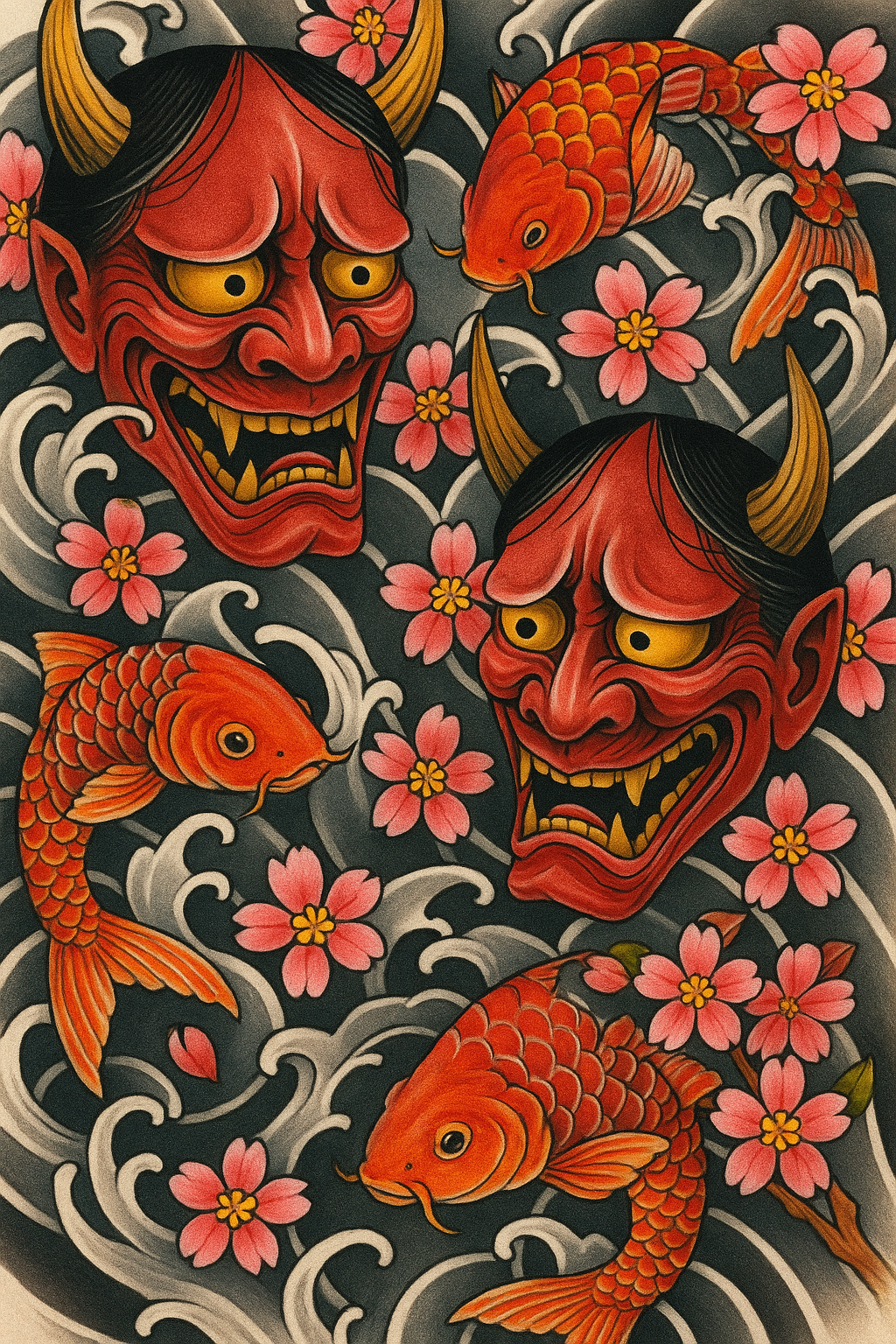
Aftercare for Hannya Tattoos
These tattoos are often large and detailed, so healing is important.
Keep it clean, moisturized, and avoid sunlight until fully healed.
Final Thoughts
A Hannya mask tattoo is more than art – it’s a mix of beauty, pain, and cultural power.
Choose your style wisely and work with an artist who respects Japanese tradition.
